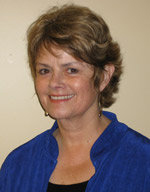Talk About End-of-Life Preferences Anyway
Moving Beyond Politics
On January 1, new Medicare regulations took effect allowing doctors to be reimbursed for patient consultations about advance planning for end-of-life care. By January 5, the Obama administration reversed the decision to include voluntary advance care planning consultations as part of a Medicare beneficiaries’ annual wellness exam. Anyone who has watched a loved one suffer needlessly in the last days of life knows all too well the value of informed conversations about end-of-life wishes with the resulting decisions being incorporated into an advanced care directive.
These conversations and ultimate decisions are personal to each individual, and talking with a physician—similar to talking with an attorney about your will—is an important part of the conversation and informed decision-making process. The Alliance for Living and Dying Well supported the new regulation as one of the important aspects of end-of-life planning, but it also believes that it is essential to have these conversations with loved ones, particularly with those who may be voicing your wishes and implementing your advance care directive.

The subject of dying makes us uncomfortable, and as such death is a closed topic in modern culture. But we all will die someday. The Alliance is working to change this “avoidance” culture in Santa Barbara by providing supportive opportunities for people to have conversations about their end-of-life wishes with family, friends and loved ones. Many of the people who have attended one of our Five Wishes Family and Friends events have told us that these conversations opened them up to better connection and intimacy, improved relationships and greater appreciation for the love and gifts each family member, loved one and friend brings.
Opponents and media stories about the new Medicare regulations inevitably mentioned the previously coined term “death panels.” Perpetuating this term is a disservice to everyone, and it implies something that, in fact, is not in existence. Let’s not confuse political banter with the facts. End of life care always has been and always should be your choice. This was not about doctors making unilateral decisions, this was about doctors and nurses who have the experience and knowledge to guide us in how to complete our Advanced Health Care Directive, helping us to live a better life and die well, with a plan in place. It’s a great relief to families when they don’t have to agonize – or worse, argue – over what a loved one intended. A clear, simple advanced care directive offers peace of mind. It’s important to remember that receiving a physician’s guidance in this planning process is entirely voluntary.
If this regulation had encouraged doctors to have these often uncomfortable conversations with patients, and had it encouraged more people to think about these issues when they have the luxury of time for reflection, than this was a good idea. The reversal of the regulation does not alter the fact that everyone should have the conversation and create an advance care directive.
Visit our website for a calendar of Five Wishes Family and Friends events, and community workshops and conferences. If you attend one of our events, we believe you will come away with thoughtful insight to what you might want for your end-of-life experience.



